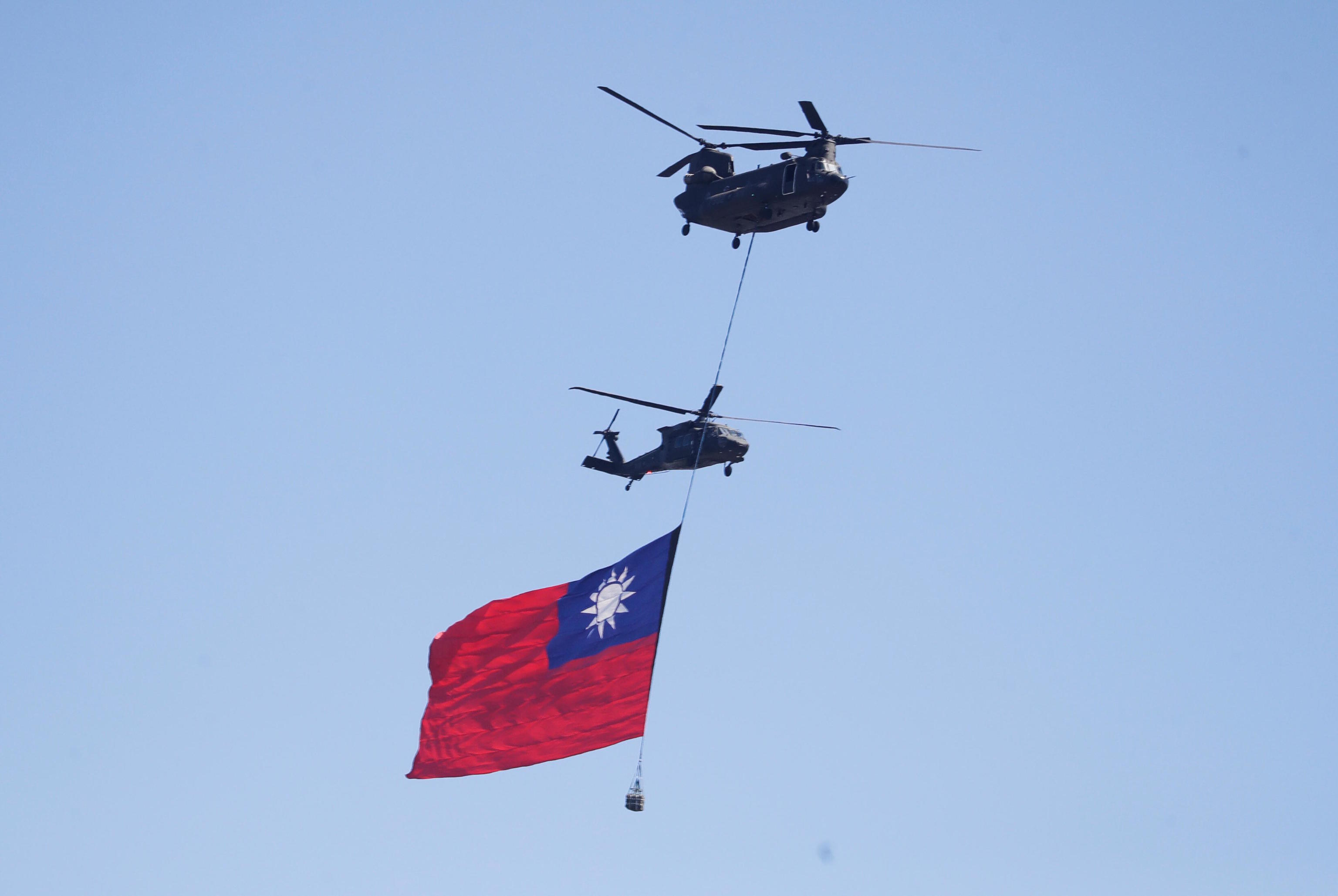The "T-Dome" is the name of the new dome-shaped air defense system that Taiwan will build. This was announced on Friday by the island's president, Lai Ching-te, during National Day celebrations. "We will protect ourselves from hostile threats," stated the leader without directly mentioning China, which claims Taiwan as part of its territory and has repeatedly stated that it does not rule out the use of force to achieve the desired "reunification."
The Taiwanese shield will be equipped with a multi-layered system to detect and intercept missiles, drones, and military aircraft. Lai did not provide further details, but some analysts compare it to the Israeli system, the Iron Dome, which has intercepted thousands of missiles fired by Hamas and other militant groups, such as Hezbollah, in the past two years.
"Taiwan will weave a security net to protect its citizens," said Lai a day after his government warned that the Chinese People's Liberation Army is enhancing its capabilities to attack the island.
In late September, several U.S. media outlets reported that Russia had agreed to assist China in equipping and training an airborne battalion for a potential invasion of Taiwan. This news came from leaked 2023 documents by the Black Moon hacker group, which were reportedly verified by the British think tank Royal United Services Institute (RUSI).
"Russia is equipping and training Chinese special forces groups to penetrate the territories of other countries without being detected, offering offensive options against Taiwan, the Philippines, and other island states in the region," experts pointed out. "If fully implemented, the agreement would enhance China's aerial maneuvering capability, an area where Moscow's military still holds an advantage over the People's Liberation Army."
The 800-page leaked file revealed that, in addition to training programs for Chinese paratroopers, both countries signed a contract that included Russia selling various command and observation vehicles and parachute systems designed to launch heavy loads from high altitudes.
This Friday, another highlighted news in Taipei was the president's confirmation that defense spending will increase to over 3% of GDP next year, with the goal of reaching 5% by 2030, far from the 10% demanded by U.S. counterpart Donald Trump.
Washington remains Taiwan's main international supporter and arms exporter, but in recent months, the Trump administration has distanced itself from the autonomous island while negotiating a favorable exit from the trade war initiated by the U.S. president. Unlike the previous Joe Biden administration, Trump has not openly stated yet whether he would defend Taiwan in the event of a Chinese attack.
Last month, just hours before a call between Trump and Chinese leader Xi Jinping, the Washington Post reported that the Republican had refused to approve a $400 million military aid package for Taiwan, which included ammunition and drones. Taiwanese officials have also privately complained about delays in the delivery of already paid U.S. weapons, especially F-16 fighters and Harpoon anti-ship missiles.
To please Trump, the Lai government is seeking a rearmament that does not convince everyone in Taipei. Opposition parties have accused the president of politically exploiting the fear of a Chinese invasion. "There is a clear need to increase military spending to counter enemy threats and for the development of our defense industries. Therefore, as defined by NATO, defense spending will exceed 3% of GDP next year," Lai stated at a ceremony commemorating the 114th anniversary of the founding of the Republic of China, the island's official title. "China must demonstrate the responsibility of a great power by renouncing the use of force and coercion in the Taiwan Strait," he concluded.
Hours after the speech, from Beijing, Chinese spokespeople responded to the Taiwanese leader, whom they have publicly referred to several times as a dangerous troublemaker. "Lai's speech distorted right and wrong, spread fallacies about Taiwan's independence and secession, once again exposing his stubborn troublemaking and warmongering nature," said Guo Jiakun, spokesperson for the Ministry of Foreign Affairs. "Lai's administration's attempt to seek independence through force and resist reunification will only drag Taiwan into a dangerous war situation."
